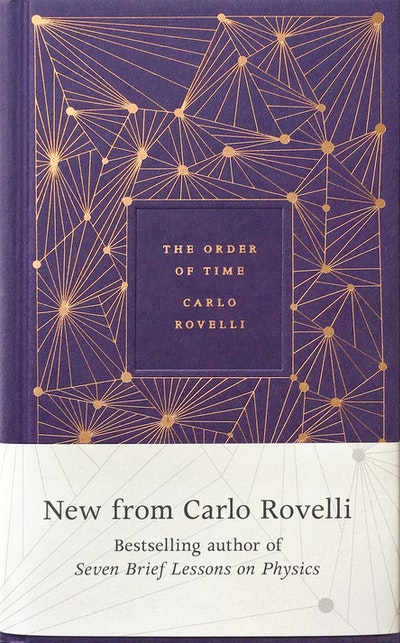Carlo Rovelli - The Order of Time
Carlo Rovelli 2000. The Order of Time. Allen Lane, 214 pp.

I think the principal ideas and reasoning are approximately thus:
Entropy, the equation for which was discovered by Clausius and the true significance of which was realised by Boltzman, never decreases over time. It is the only fundamental equation in physics which requires a term for time.
Thus, entropy and thermodynamics are intimately related to time. So, argues Carlo Rovelli, perhaps entropy creates time. Which would mean that low entropy is required – why should there be low entropy? Either it is an extraordinary special condition that has to be explained (as is argued for example by David Albert, Time and Chance Harvard University press, 2000), or else as Rovelli argues, it is only our part of the universe where entropy was low and thus perhaps not so improbable. As a consequence, time “flows” for us due to thermodynamics but is not universal in other regions where entropy was never low.
The traces of thermodynamic events in the past seem to be causes and memories to us, but according to this view these things are (p. 147):
nothing but names we give to the consequences of a statistical fact: the improbability of a past state of the universe
Simple really.
Carlo Rovelli then goes on to discuss the implications for ourselves. He argues plausibly (p. 152):
I believe that our notion of self stems from this [social interactions], not from introspection. When we think of ourselves as persons, I believe we are applying to ourselves the mental circuits that we have developed to engage with our companions.
Contra Descartes, in other words.
We are also memories, histories which we apply to attempt to predict the future, and condensing these memories gives us our sense of time. Rovelli traces this idea to St Augustine (p. 157):
It is within my mind, then, that I measure time. I must not allow my mind to insist that time is something objective. When I measure time, I am measuring something in the present of my mind. Either this is time, or I have no idea what time is.
Music is given as a powerful example. If we live only in the present (with past and future inaccessible), how is it possible for us to appreciate music? Because we remember, and anticipate. Only in our mind. (Like so many interesting a powerful ideas, this was heretical to the Catholic church.)
In the penultimate chapter, The sources of time, Rovelli provides his own effortlessly eloquent precis of his argument. Concluding pragmatically that (p. 174):
I don’t think there is much more than this to be understood.
Just go back now and cultivate the garden.
The final chapter, The Sister of sleep (from J.S. Bach Cantata BWV 56) is Carlo Rovelli’s personal statement of where his ideas in time, life and death have taken him. To a place of serenity given to few, at once informed, rooted in the history of ideas, and original.


